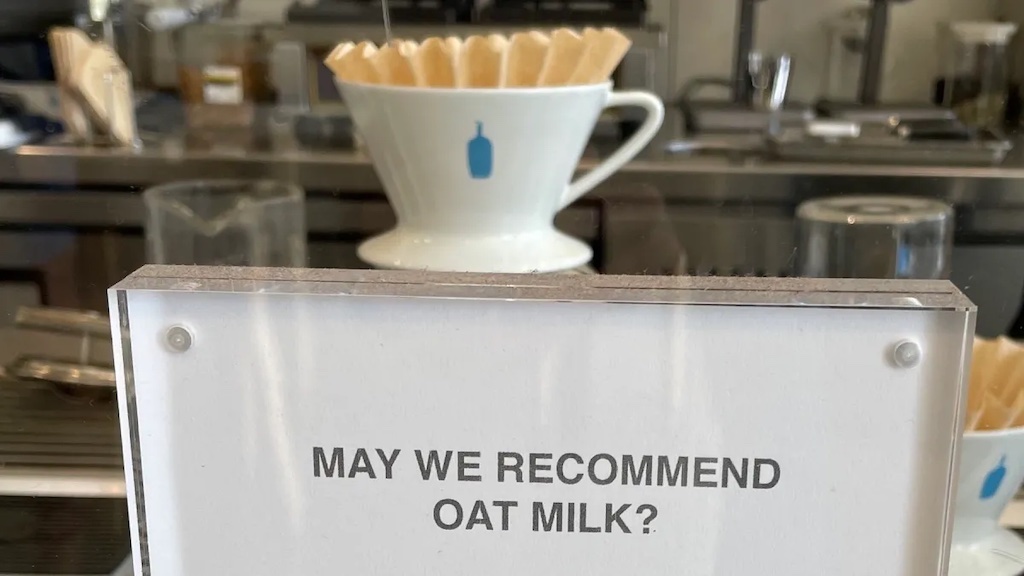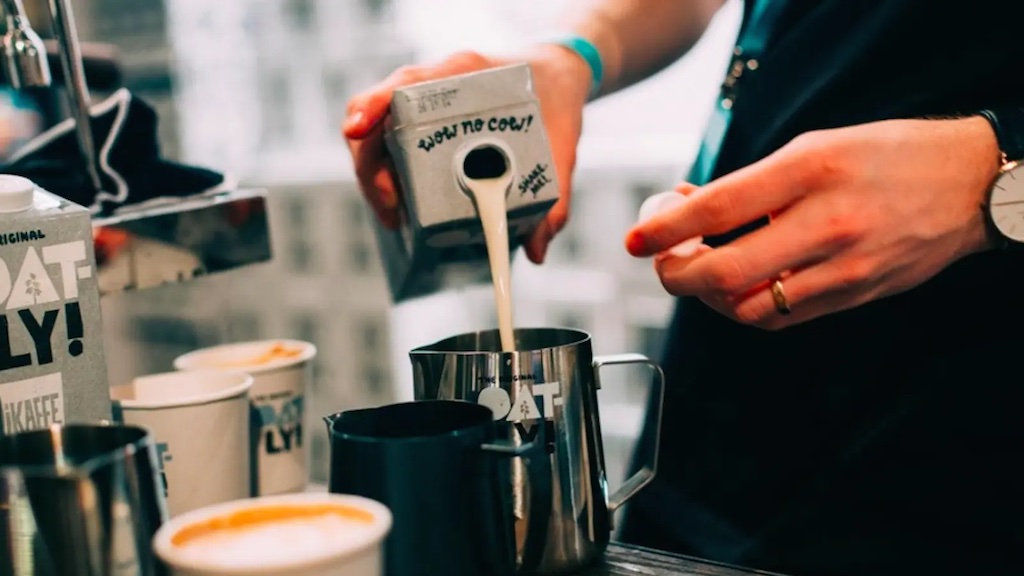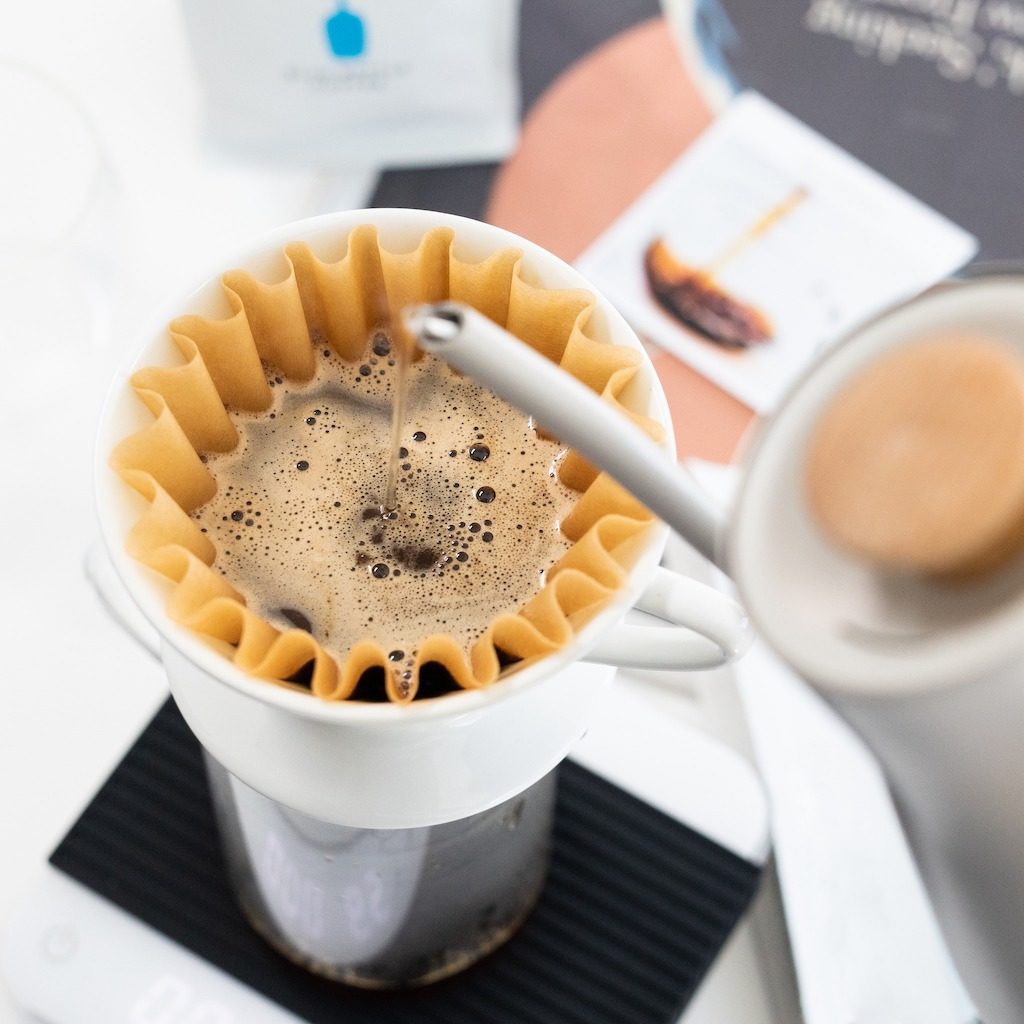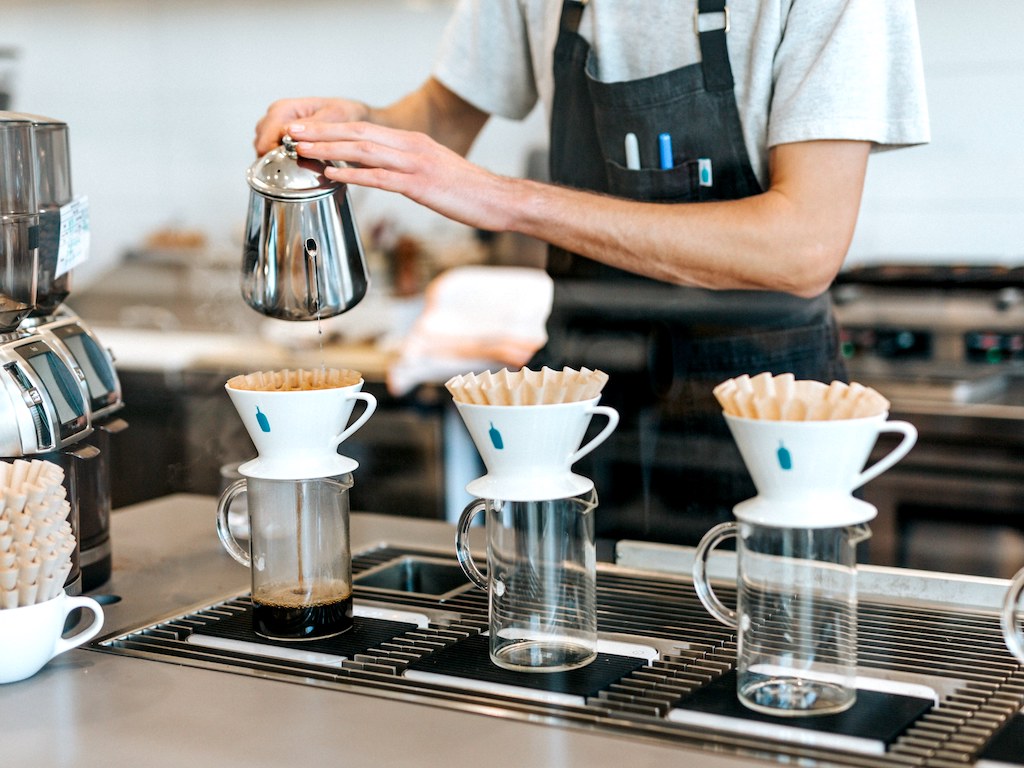3 Mins Read
Blue Bottle Coffee has just made oat milk the “default option” in two of its U.S. stores as part of a trial. The Bay Area-based gourmet roaster said that many of their customers actually prefer the vegan oat-based alternative over its dairy counterparts, and noted that it was the more climate-friendly choice.
Blue Bottle has decided to trial oatmilk by default in two of its U.S. cafés, according to a report from New Consumer. One location is in Los Angeles, where a sign reads: “May we recommend oat milk?,” followed by a short explainer about how “many of you prefer it” for its “beautiful shiny micro-foam.”
“Plus, oat milk creates fewer greenhouse gas emissions than dairy,” the note read. It is reported that one of Blue Bottle’s San Francisco locations is also now serving up oatmilk by default.

Plant-based dairy trend
Blue Bottle’s move to offer oatmilk by default taps into the fast-growing plant-based milk trend. While consumers have for years been slowly shifting away from traditional dairy, the popularity of vegan milk have skyrocketed since the pandemic.
Many of these vegan milk fans aren’t exclusively vegan either, with recent research suggesting that 42% of global consumers now consider themselves flexitarian, also known as “part-time vegans”. Plant-based milk, in particular, has become the number one vegan item of choice that consumers are putting into their online grocery shopping baskets.
More specifically, oatmilk outpacing the growth of its other plant-based milk competitors, especially long-time alternatives like soy or almond milk. Oatly is perhaps the most well-known oatmilk brand on the market (and Blue Bottle uses it), but a number of other players including Alpro and Califia Farms now also offer oat-based milk, yogurt and other dairy alternatives.

According to SPINS data, sales across the entire oat milk category rose by triple-digits over the past year—294% in enhanced retail channels and 345% in mainstream retailers.
Plant-based by default to become ‘natural next phase’
For alternative protein expert and investor Michal Klar, Blue Bottle’s trial is just a taster of a wider trend to come in the future.
“I believe in the next few years more and more restaurant chains will start to offer plant-based dairy and meat as a default, with an option to swap for animal-based,” Klar says. “This will be a natural next phase in a gradual move away from animal-derived foods as prices of plant-based versions drop and consumer acceptance increases.”
Klar noted that more initiatives are now pushing companies to take the “plant-based by default”, including nonprofit Default Veg in the U.K. and Europe, and Greener by Default based in the U.S.

Blue Bottle hasn’t expanded on whether the trial will be rolled out across its other 100 locations globally, but for now, all of its shops do serve Oatly’s oatmilk upon request, reportedly with no additional cost. The coffee chain, which came under Nestlé’s ownership in 2017, also offers Califia Farms’ almond milk in some regions.
Coffee giant Starbucks has also gone all-in on plant-based, after making a public pledge to become more sustainable last year. It has since removed the additional fee known as the “vegan tax” on their drinks made with plant-based milk.
Starbucks has also rolled out a number of oatmilk beverages made with Oatly, as well as meatless dishes made with Beyond Meat, Impossible Foods and Omnipork across markets globally.
Lead image courtesy of Blue Bottle Coffee.




